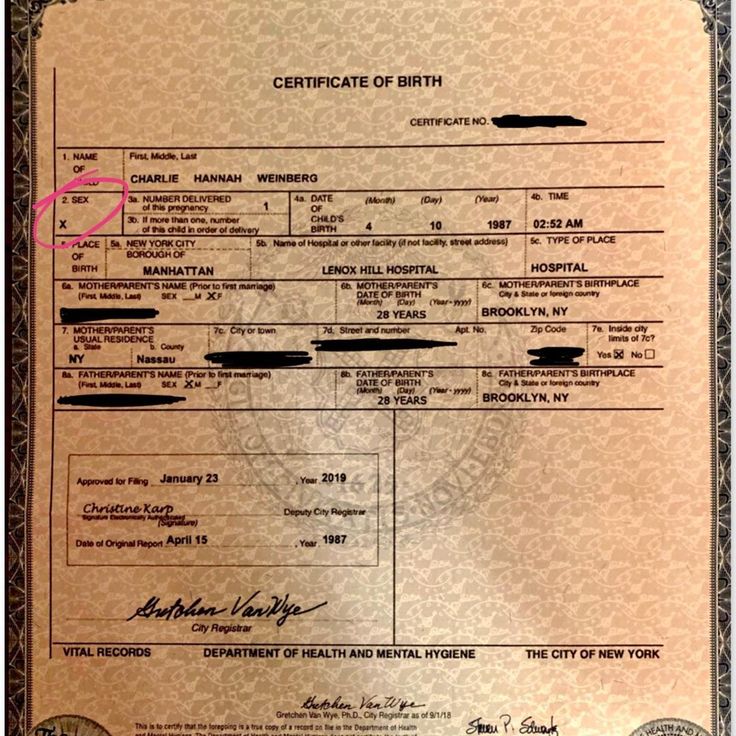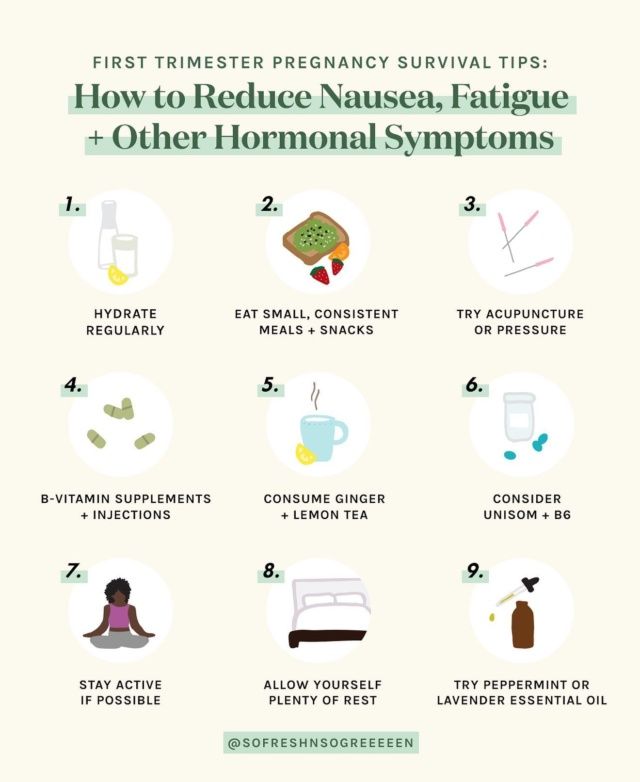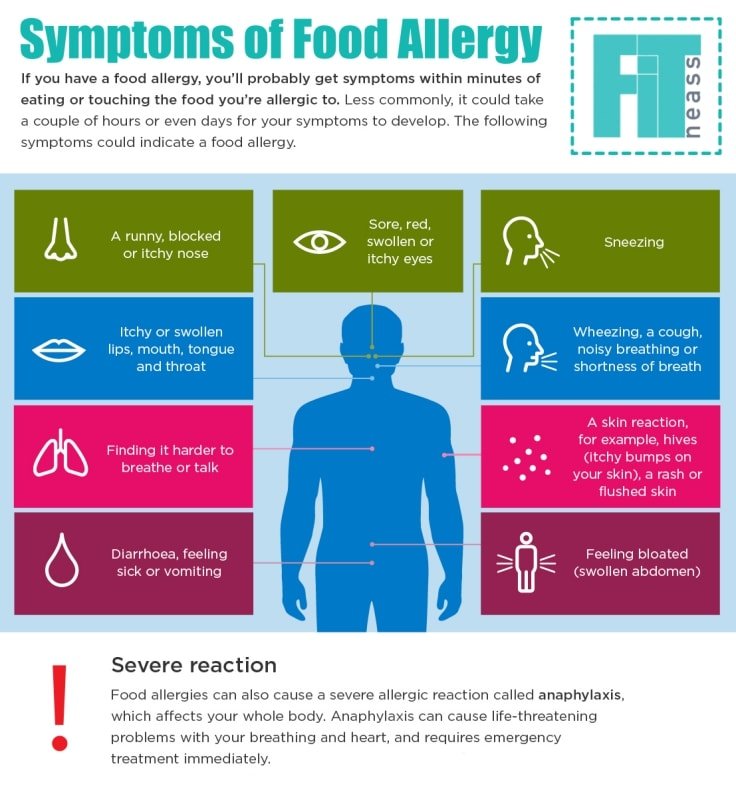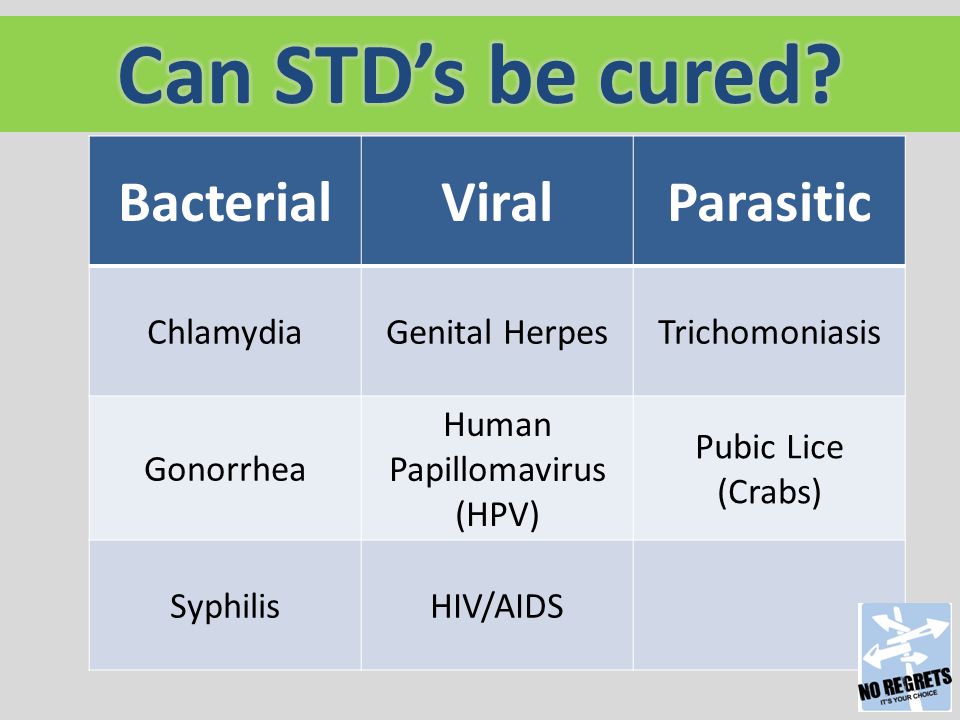How to find child psychologist
How to Pick the Best Child Therapist
Considering the different types of therapy available and asking the right questions can help you find the best fit.
Sometimes, children and teens need help with their feelings or problems. If you think your child or teen isn’t doing as well as they should be, consider whether they may need therapy.
Just under 14% of children between 5 and 17 years old go to therapy each year. A good therapist can help your child cope with a variety of difficulties, including:
- mental health conditions such as anxiety or depression
- trouble coping with learning disorders
- interpersonal conflicts
- problems with parents or friends
- stressful events like divorce or death
But how do you find the right therapist for your child? Vetting therapists requires a combination of taking your time and knowing what, and whom, to ask.
Does your child need a social worker? A psychologist? A psychiatrist? A combination?
Each of these therapists has a different type of training and provides different services.
Counselors
Marriage and family therapists (MFT) and licensed professional clinical counselors have their master’s degree in counseling.
Counselors work with children and families to see into their dynamic. They look at environment, behavioral patterns, family function, and more to get insight into how children can adapt to live well.
Clinical social workers
Clinical social workers have a master’s degree in social work, and their goal is to help your child or teen succeed in their environment.
They will work with your kid to help them deal with problems they’re having at school. This can include feeling stressed, acting out, or being bullied.
They can also help your child build a better connection with family members.
Clinical psychologists
Clinical psychologists have a doctorate degree in psychology, and they offer a variety of services for kids.
If your child or teen is struggling to keep up at school, or you think they might have a mental health condition like ADHD or autism spectrum disorder (ASD), a psychologist can provide educational and psychological testing.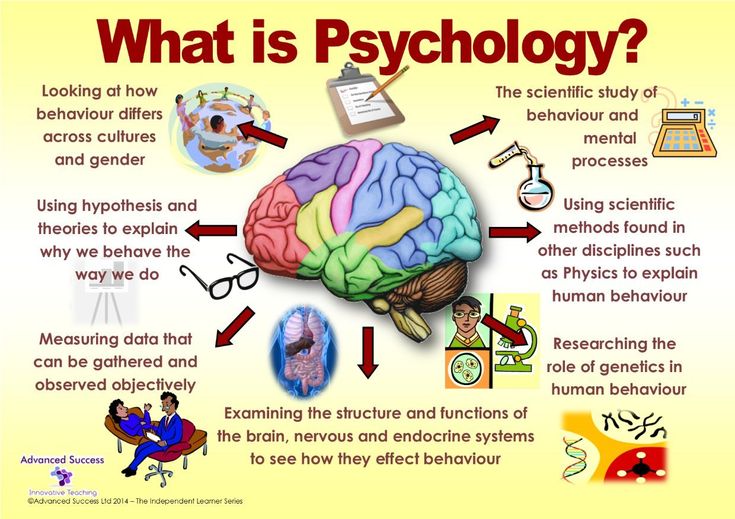
They often take an research-based approach to therapy and work with youths who have more complex issues.
Psychiatrists and psychopharmacologists
These professionals have a medical degree.
If your child needs medication for anxiety, depression, ADHD, or any other condition, they will prescribe and monitor your child’s medication.
There are many types of therapy available for children and teens. Selecting the right one for your kid will depend on your child’s age and their reasons for therapy.
Here are some of the more common therapies:
Play therapy
This type of therapy is great for pre-K or elementary school-aged children who need guidance coping emotionally or have experienced a stressful event.
A therapist will use toys, dolls, games, or art to help your child express how they feel. While playing together, the therapist can help your child work through their emotions.
Here are other therapies that can be a big help to younger kids.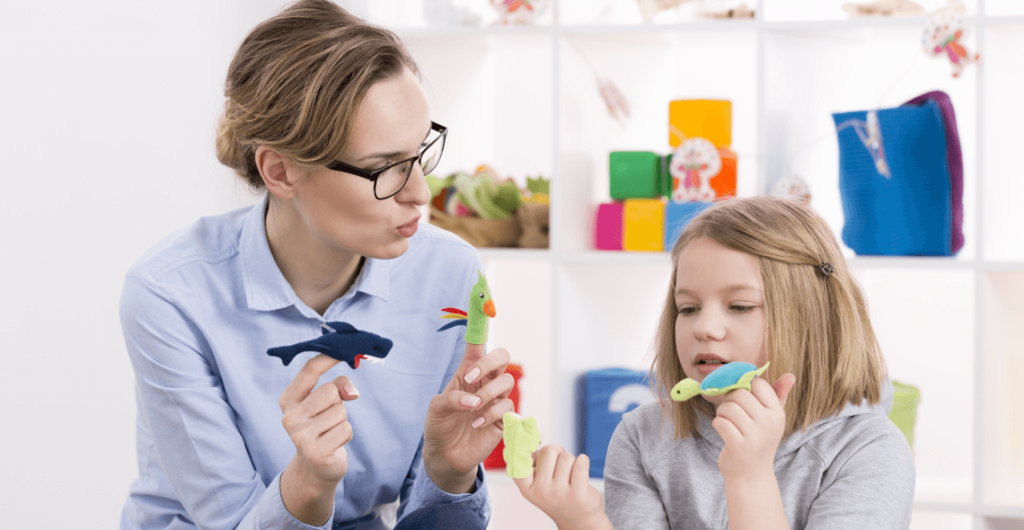
Cognitive behavioral therapy (CBT)
CBT is used with children who struggle with attention, mood disorders, phobias, and compulsions.
The therapist will work with your child to help them understand their thoughts, words, and actions. They’ll then work on better ways to respond in the future.
They’ll teach your child certain techniques, like meditation, to manage their behaviors. Or, they will gently unpack your child’s fears to help them overcome them.
Talk therapy
Having someone who will listen to your problems and help you work through them can be pivotal.
In talk therapy, your child can:
- develop the skills they need to solve their challenges
- understand and express their feelings instead of acting them out
- form stronger, healthier relationships
- communicate their needs
Group therapy
If your kid is having a hard time socially, group therapy is an unmatched way for them to learn the skills they need to overcome their social challenges with others on their level.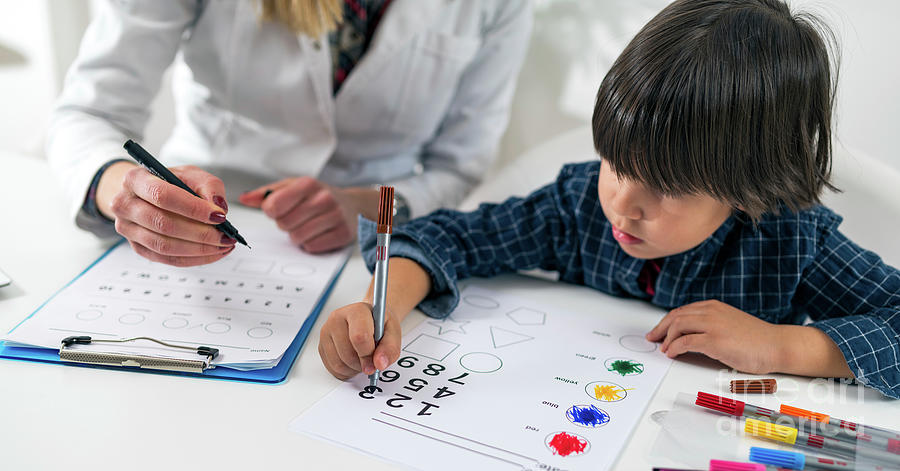
Your teen or younger child can learn and practice the rules of socialization along with others who have the same challenges. It may also build their confidence, especially if they’re shy or have been bullied.
Family therapy
If your family is going through a difficult time (e.g., divorce, illness, death of a loved one, financial struggles), family therapy can help you better understand and support one another.
During your sessions, each person will have the opportunity to express how they feel about the situation and the other’s actions or reactions. You’ll learn how to communicate better, and you’ll reestablish your relationships with one another.
Once you know what type of therapist and therapy will be best for your child, it’s time to get recommendations.
The best way to find a good therapist is to ask around. You’ll want to interview at least three potential therapists, so asking a few different people is a good idea.
Hopefully, a few names will pop up over and over again. Put those therapists on your short list. Hold on to the other names just in case.
Put those therapists on your short list. Hold on to the other names just in case.
When looking for recommendations, consider asking the following people:
- The school’s psychologist, social worker, or guidance counselor. Schools usually keep a list of local therapists who have a good reputation.
- Your child’s pediatrician. Like schools, pediatricians usually have a list of therapists they know and trust. If they’ve known your child for years, they may narrow down their list to the ones they think would be the best fit.
- Trusted friends. If a good friend has shared their positive experience with a child therapist, you might want to talk to them about what they liked. If it seems like the therapist would also be a good fit for your child, you can ask for the therapist’s information and perhaps let the therapist know who referred you.
- Local community or parenting groups. Whether online or in-person, local support groups within the community, and for parents specifically, can be a wealth of information.
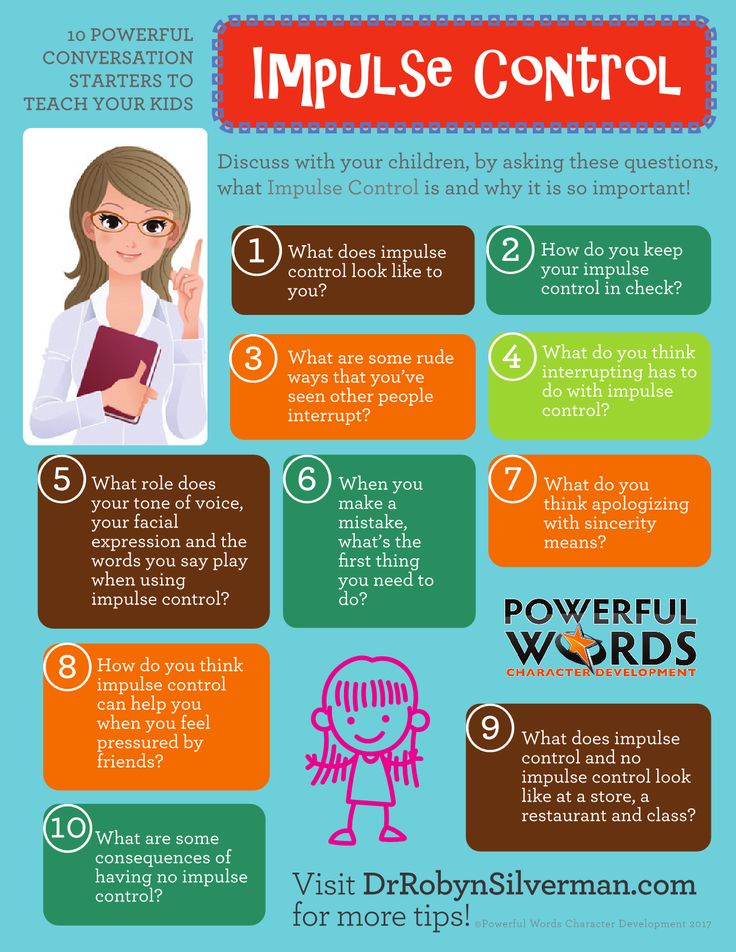
- Health insurance company. If you’d like to stay in-network, you might want to ask your health insurance for a list of therapists that take your insurance.
With your short list complete, it’s time to vet your potential therapists.
Therapists often offer a free 20- to 30-minute phone consultation with potential new clients. If you need more time, or if you can’t decide between two therapists, you can schedule an appointment to speak further before you decide to introduce them to your kid.
Most therapists have their own unique approach to how they work with children and teens, so it’s best to write up a list of questions to ask them when you speak.
As you create this list, think about what you’re looking for in a therapist. Make sure you know what’s non-negotiable so you can rule out anyone who doesn’t meet your criteria.
Screening questions parents can ask a potential therapist
Here are some general questions to consider:
- Do you have any days/times available for new clients? Are you flexible around school hours?
- Do you accept insurance or what is your hourly rate?
- What’s your background and training working with children?
- Do you have any cultural competency experience or training?
- What type of therapeutic methods do you do with children? And with teens?
- How often do you meet with parents?
- Will you be in contact with my child’s teacher or guidance counselor?
- How long do children usually stay in therapy with you?
If your child has been diagnosed with a learning disorder or mental health condition, or if they recently experienced a stressful event, you should ask specific questions about the therapist’s particular experience with this nuance as well.
Prompts when vetting a child therapist
Here’s a few starters to get the answers you need:
- Are you familiar with _____?
- How many years have you worked with children who have ____?
- How do you typically work with children who have _____?
- What is your experience like working with children in the _____ community?
- What range/overall duration for therapy, with children who have _____?
- What are your thoughts about medication?
According to Psychologist Cindy Graham, founder of Brighter Hope Wellness Center, once you think you’ve found the right therapist for you, schedule your first few sessions to further determine if it’s a good fit.
“Typically, the first one or two appointments will allow me to meet your child and understand their story,” Graham explains.“The next three to four sessions is just about me getting to know your child. And the fifth session will be my feedback session with you, the parent. ”
”
After those first several sessions, you can decide if the therapist is a good fit for you and your child.
Before you go to your first session, make sure to talk to your child about why they’re going to therapy and how therapy can help them.
For older teens, you might also offer the option of finding their own online support group for an additional sense of community.
Finding the right therapist for your child and committing to the process can improve your child’s life as well as your own.
Child: How Can I Find A Child Therapist Near Me?
As parents, we try to give our children the best lives possible by giving them the tools they need to lead happy and successful lives. However, sometimes your child needs more than you can provide. Even if you happen to be a physician or a psychologist yourself, it’s important to find a professional like an online therapist you can trust when your child is struggling with a mental health issue.
Getting Your Child The Help They Need Shouldn't Be Difficult
That's Why We're Here - Get Started With BetterHelp.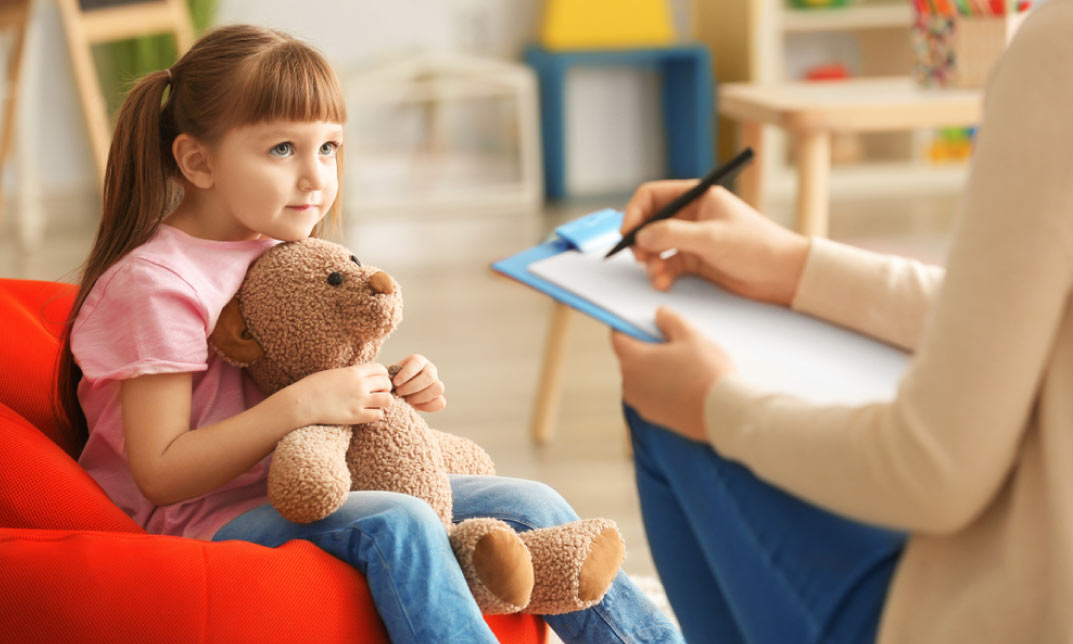
As a parent, before searching "find a children's therapist near me", a good place to start is looking at the reason(s) why you think your child needs to see a professional therapist like psychologists or licensed therapists. For example, is your child showing signs of anxiety? Anxiety disorders are the most common mental health disorders in the United States. In fact, research has found that anxiety affects approximately 18.1 percent of the population – equivalent to about 40 million people – every year.
In other words, it’s very common and there are ways to help your child or children. Luckily, due to the prevalence of these disorders, there is a variety of ways to treat anxiety through treatment options like attending therapy sessions and counseling. Recent research based on evidence based practices shows that cognitive therapy on its own significantly improves anxiety symptoms and even causes complete recovery from anxiety for about 85 percent of people tested. If your child is living with anxiety, you’re not alone and neither are they. Many other parents have been in your shoes, so there is no shame in asking for help, and you can learn a lot from searching 'child therapist near me'.
Many other parents have been in your shoes, so there is no shame in asking for help, and you can learn a lot from searching 'child therapist near me'.
According to the Anxiety and Depression Association of America (ADAA), just over 25 percent of children between the ages of 13 and 18 have an anxiety disorder. There are several types of anxiety such as generalized anxiety disorder (GAD), social anxiety disorder, phobias, obsessive-compulsive disorder (OCD), panic disorder (PD), and posttraumatic stress disorder (PTSD).
Some signs that your kid may have an anxiety disorder include:
- Nightmares
- Trouble falling asleep or staying asleep
- Increased agitation or anger
- Chronic fatigue
- Shaking or trembling
- Avoiding friends and family
- Refusing to go to school
- Lack of interest in favorite activities
- Trouble concentrating and remembering things
- Inability to make decisions
- Constantly worrying about everything or just one certain thing
- Increased heart rate
- Sweating more than usual
- Gastrointestinal issues
- Nervousness or being on edge
Everyone gets sad sometimes.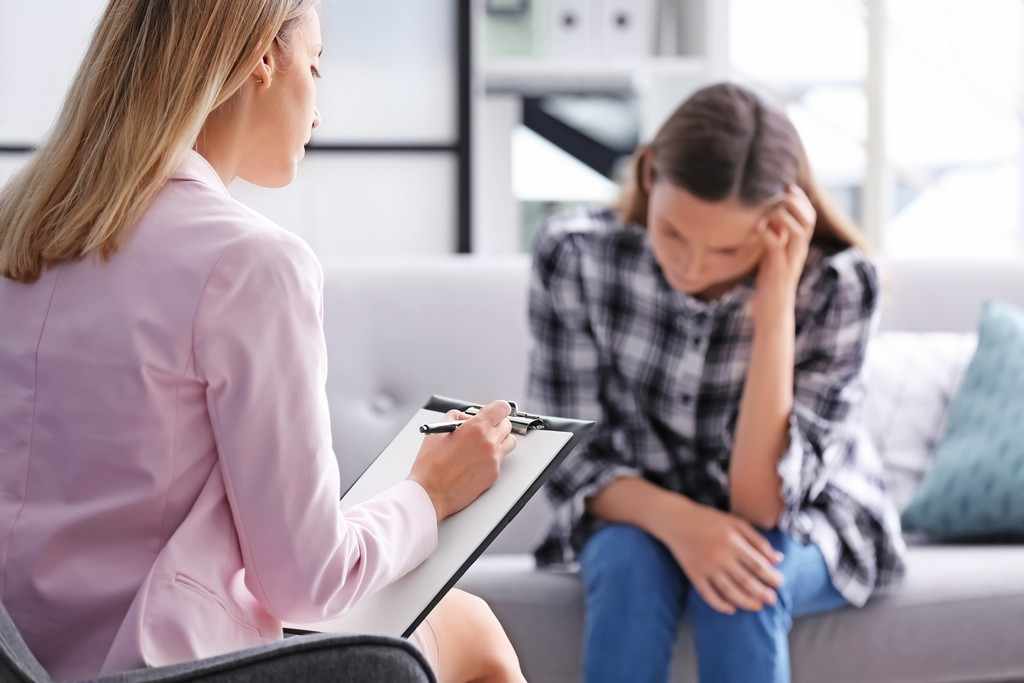 Sadness is a normal human emotion, and it’s a common experience for people of all ages. This is why therapy sessions practicing cognitive behavioral therapy have increased in popularity. However, if you find a child you know shows signs of sadness for no obvious reason and it lasts for more than a few weeks, it may be a sign that the child is depressed. Similar to anxiety disorders, there are different types of depression. These include major depressive disorder, persistent depressive disorder, seasonal affective disorder (SAD), psychotic depression, and bipolar disorder; older female children can also experience premenstrual dysphoric disorder. Some of the signs of depression in children include:
Sadness is a normal human emotion, and it’s a common experience for people of all ages. This is why therapy sessions practicing cognitive behavioral therapy have increased in popularity. However, if you find a child you know shows signs of sadness for no obvious reason and it lasts for more than a few weeks, it may be a sign that the child is depressed. Similar to anxiety disorders, there are different types of depression. These include major depressive disorder, persistent depressive disorder, seasonal affective disorder (SAD), psychotic depression, and bipolar disorder; older female children can also experience premenstrual dysphoric disorder. Some of the signs of depression in children include:
- Avoiding friends and family
- Extreme fatigue
- Loss of interest in favorite activities
- Sleeping more than usual
- Trouble concentrating or making decisions
- Changes in appetite
- Weight loss or gain
- Acts of aggression or agitation for no obvious reason
- Sadness for longer than two weeks
- Feelings of hopelessness or low self-esteem
- Talking about death or dying
*Note: If you or a loved one are experiencing suicidal thoughts, reach out for help immediately.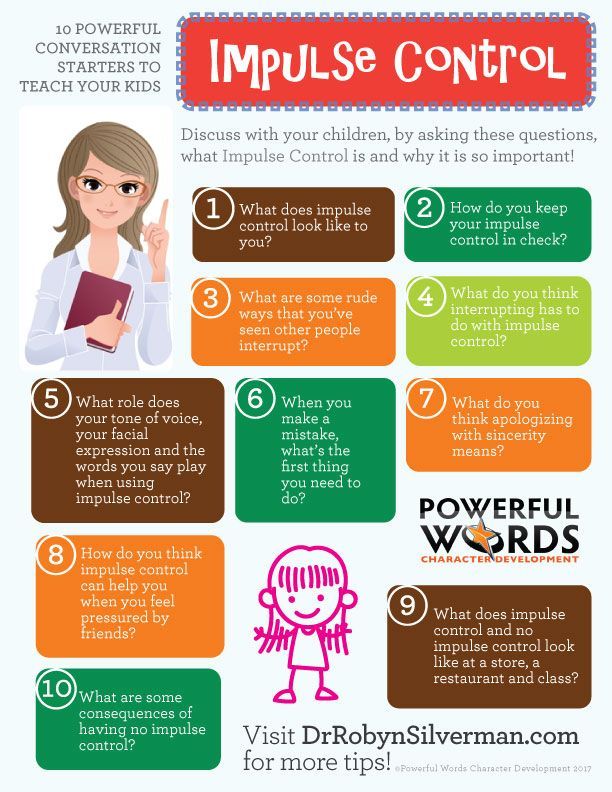 National Suicide Prevention Lifeline can be reached at 1-800-273-8255, and is available 24/7.
National Suicide Prevention Lifeline can be reached at 1-800-273-8255, and is available 24/7.
Attention-deficit hyperactivity disorder (ADHD) is by far the most common mental illness seen in children and adolescents. Previously known as attention-deficit disorder (ADD), many people confuse these two names, but they refer to the same disorder. According to the Center for Disease Control (CDC), this common disorder affects more than six million adolescents in the United States.
What exactly is ADHD? It is a chronic neurodevelopmental disorder that is most often diagnosed in kids between the ages of six and nine. Researchers are still not sure what causes the condition, but the science behind it shows that kids with ADHD have unusual neurotransmitter activity in the brain. Some of the signs of ADHD include:
- Hyper or restless behavior
- Inability to concentrate or pay attention
- Disruptive behavior
- Inability to control impulsive behaviors
- Lack of attention to detail
- Difficulty listening or understanding instructions
- Poor organization or management
- A tendency to lose or misplace things often
- Often distracted or forgetful
- Inability to sit still
- Talks too much
- Behavioral problems at home or in school
- Displays little or no patience
It’s important to note that the medical community acknowledges that the facts are a bit murky when it comes to diagnosing ADHD. Just because a child exhibits the symptoms listed above, it does not necessarily mean that this child has ADHD. You’ll want several opinions from different doctors and licensed therapists before accepting a formal diagnosis.
Just because a child exhibits the symptoms listed above, it does not necessarily mean that this child has ADHD. You’ll want several opinions from different doctors and licensed therapists before accepting a formal diagnosis.
While there are more than 200 different types of mental illnesses, the ones described above are the three most common disorders that affect children under the age of 18. If your child has any of the above symptoms or if any of their behaviors concern you, it’s time to reach out to child therapists for help. Whether your child has signs of depression, anxiety, ADHD, behavioral problems, or another mental or emotional condition, finding the right child therapists is important. Some therapists specialize in specific areas like working with children who have cerebral palsy, so it's best to do research and make sure to find the best one for your child if your child has cerebral palsy or another condition.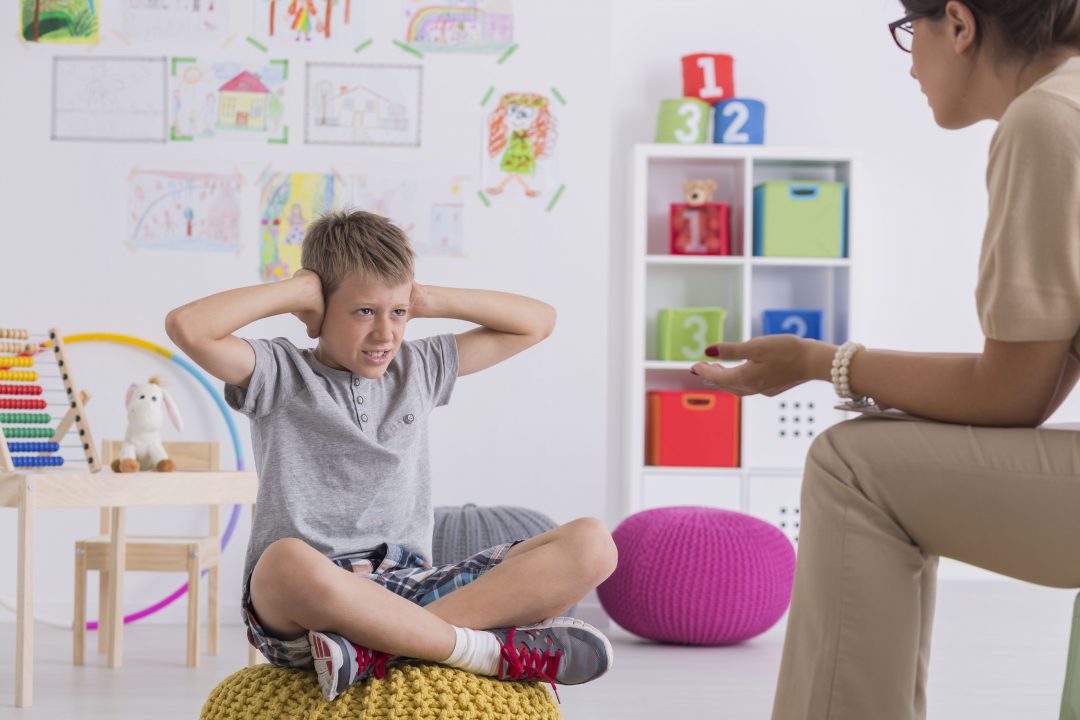
Finding A Child Counselor Near You
You may be wondering how to find child therapists or book an appointment. There are many helpful websites you can use, such as the American Psychological Association (APA) psychologist locator, where you can search for a child therapist near you using your zip code or address. As a parent, supporting your kid comes first, but what happens when you need someone to support you in that process as parents with families? It’s critical for you to make sure you’re taking care of your own needs in your life, so that you can be there for your kid. Many parents have used online counseling platforms, because they allow you to see someone on your life schedule (without adding the stress of another drive to another appointment).
The Psychologist Specializations
Psychologists who specialize in adolescent psychology work in many different settings, including hospitals, schools, private practice, and research. Depending on what your kid needs, you can find the right type of psychologist with a bit of research.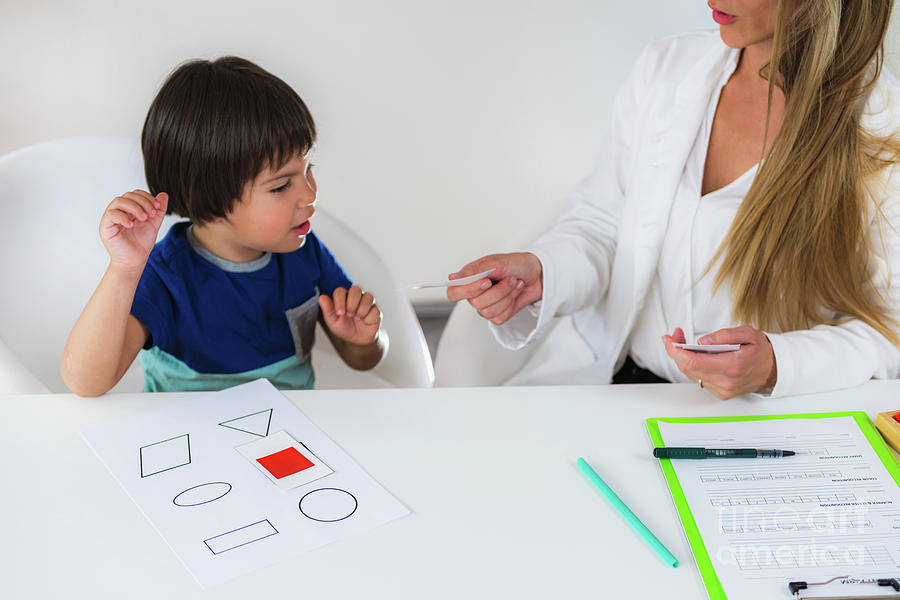 Each adolescent psychologist has a unique specialty, and you should be aware of this when searching for a pediatric psychologist.
Each adolescent psychologist has a unique specialty, and you should be aware of this when searching for a pediatric psychologist.
The Types of Psychologists
Abnormal psychologists — typically work with children and adolescents who are struggling with a mental health disorder. These include anxiety, depression, and other personality and mood disorders.
Adolescent psychologists — mainly work with children between the ages of 12 and 18-years-old who are struggling with mental illness. These include anxiety, depression, eating disorders, and behavioral conditions.
Developmental psychologists — usually focus on the development of children, but they can also follow their conditions through adulthood.
- School psychologists — work in the educational system to help children and adolescents with academic, social, behavioral, and emotional issues.
- Educational psychologists — study how individuals learn, including differences in learning ability, learning disabilities, and gifted learners.
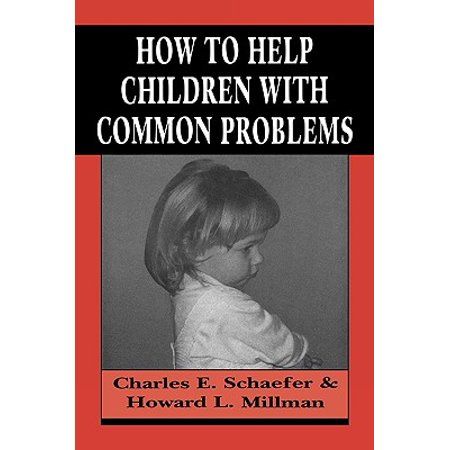
Psychologists And Treatment Methods
Child psychologists use a variety of treatment methods to work with different conditions. Whether you take your child to a traditional counselor or use online therapy, your psychologist will develop a treatment plan that is likely to include one or more of these six choices:
Cognitive-behavioral therapy (CBT) works beautifully for children because it teaches them how to replace their negative thoughts with positive ones and how to cope with and control their behavior.
Social skills therapy helps children who are struggling with their interaction skills in everyday life. This could include making friends, interacting with adults, making eye contact, or even holding a simple conversation with someone.
Traumatic-based therapy is often best for children who have been exposed to a traumatic situation, such as the death of a loved one, abuse, neglect, natural disasters, or a major accident.
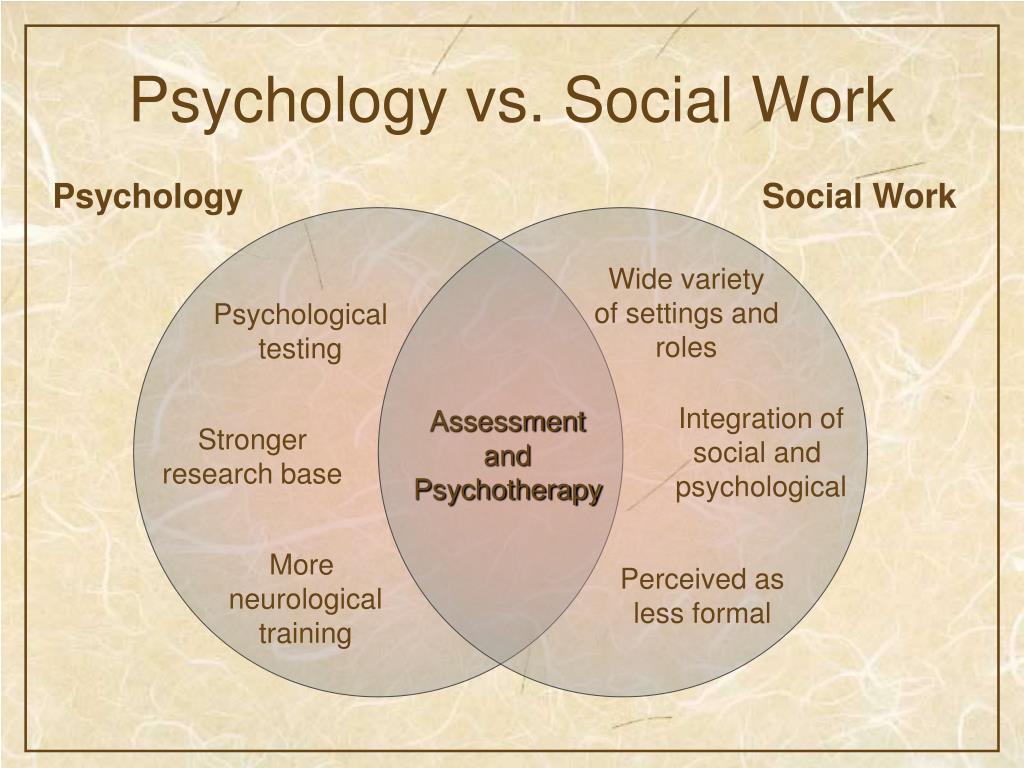
Grief counseling is similar to traumatic-based therapy in that it deals with a traumatic situation, but it only involves healing after the death or loss of a loved one. Children do not process the loss of a loved one the way adults do, so they need special support at this delicate time.
Family therapy involves treating the entire family as a unit. This is good for those with behavioral issues or those with a troubled family issue, such as divorce or abuse.
Group therapy can be helpful for children who need to build social skills and self-esteem. It lets children know that they are not the only ones feeling the way they do.
If your child has been having issues at school, isolating themselves, or experiencing behavioral problems, you should not wait and see if it goes away. This is especially important if they have been exposed to a traumatic situation, such as abuse, violence, or a natural disaster.
Children can learn to start hiding their feelings if they think you’re making a big deal out of them or if you’re avoiding the issue.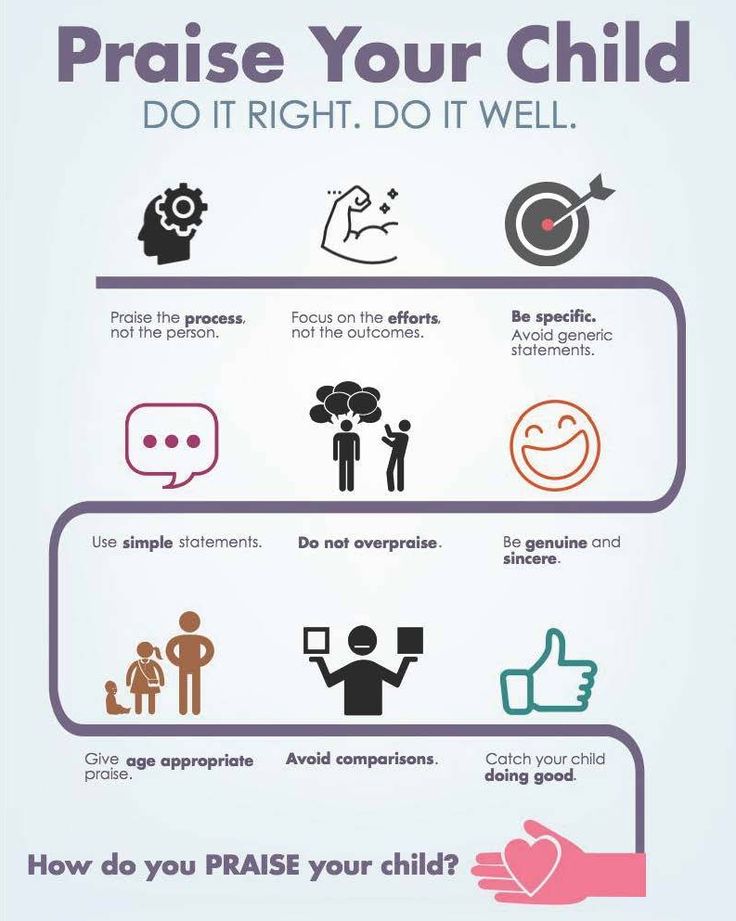 It’s best to talk to your child about what is bothering them or tell them why you’re concerned. However, be careful to avoid becoming obsessive about it. If they do not want to talk to you, drop it gently, but let them know that you are there if they need you. Then, find a top-rated psychologist who can help you address the situation. You can ask the psychologist for evidence-based suggestions on how to approach your child, so they can support you while you support your child.
It’s best to talk to your child about what is bothering them or tell them why you’re concerned. However, be careful to avoid becoming obsessive about it. If they do not want to talk to you, drop it gently, but let them know that you are there if they need you. Then, find a top-rated psychologist who can help you address the situation. You can ask the psychologist for evidence-based suggestions on how to approach your child, so they can support you while you support your child.
Family Therapy
If your child is young, you will likely need to attend a counseling session with them at least once to help them feel more comfortable, but psychologists typically like to talk to children alone as well. It’s essential for the psychologist to see how your child behaves while you’re not around because it may help them see signs of certain conditions that are not as evident when you’re in the room. At some point, the psychologist may want to see the entire family as well to give them clues about how the family interacts, so they can implement the most effective treatment plan possible.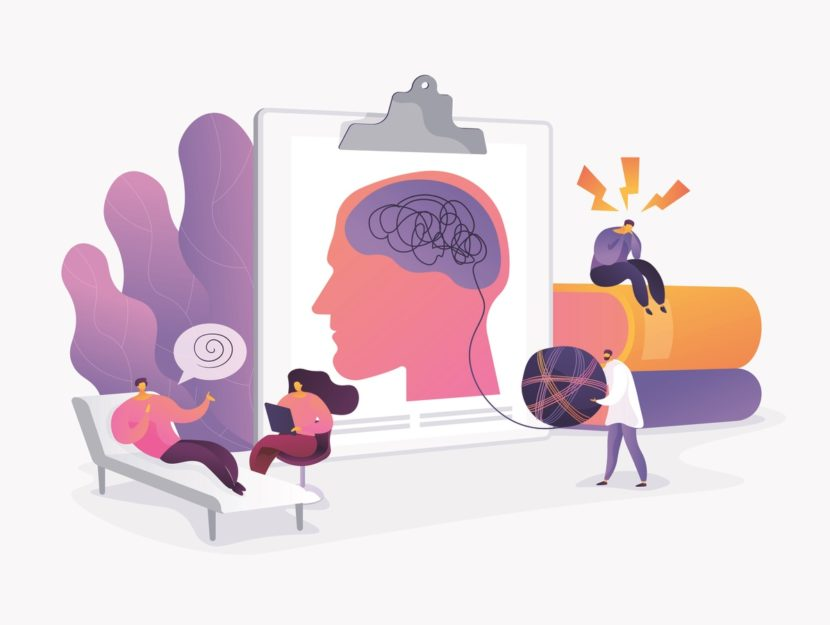
In conjunction with therapy, there are a few other things you can do to help your child.
Get Involved. Having the support and love of a parent is crucial for your child’s success. Kids feel more confident and stable when they know they can count on the adults in their lives.
Get Moving. Talk a walk around the block together. You can use this time to talk about problems and brainstorm ways to overcome them. As a bonus, exercise releases endorphins in the brain, which will put a little pep in both of your steps.
EncourageJournaling. Having a creative outlet can be a great thing for a child. If you give them their own private space to document and express their problems, it will be easier for them to cope. You may also provide colored pencils and other art supplies during this process, as some children benefit from art therapy.
Seeking Help
Getting Your Child The Help They Need Shouldn't Be Difficult
That's Why We're Here - Get Started With BetterHelp.
If can be hard to find a child psychologist for child therapy or child counseling, but with a little research, you’re sure to find the support you need. With a platform like BetterHelp, you can choose traditional face-to-face therapy or online therapy, which can be a great option for parents. BetterHelp also has a service specifically for children aged 13-18 years old, at TeenCounseling. Online therapy will allow you and your child to communicate with a psychologist via video conferencing, phone, email, text, or live chat.
As the world’s largest online counseling service, BetterHelp and TeenCounseling has helped millions of people and families. In fact, BetterHelp has been found to be just as effective as in-person therapy, with 98% of users making significant progress in their mental health journeys and 94% preferring it to face-to-face therapy. One study published by the American Psychological Association found that internet-based treatment for adolescent anxiety is on-par with in-person treatment for adolescent anxiety.
No matter what signs or symptoms you’re seeing, do not hesitate to contact an online psychologist right away if you need help. It can sometimes take weeks or even months to get an appointment with a traditional psychologist, but online psychologists like the ones on BetterHelp.com are available 24/7. Furthermore, BetterHelp operates outside of traditional working hours, making it easier than ever to schedule an appointment. Sessions can be conducted via video chat, phone call, instant messaging/texting, or live voice recording – whatever works best for you and your child! Read below for some reviews of BetterHelp and TeenCounseling counselors, from parents experiencing similar issues.
Counselor Reviews
“Dr. Torres is amazing with the things she is doing with my 13 year old daughter. My daughter has recently been bullied which caused her to be angry and lack of motivation skills was 0. No confidence in herself. She would not go anywhere or do anything.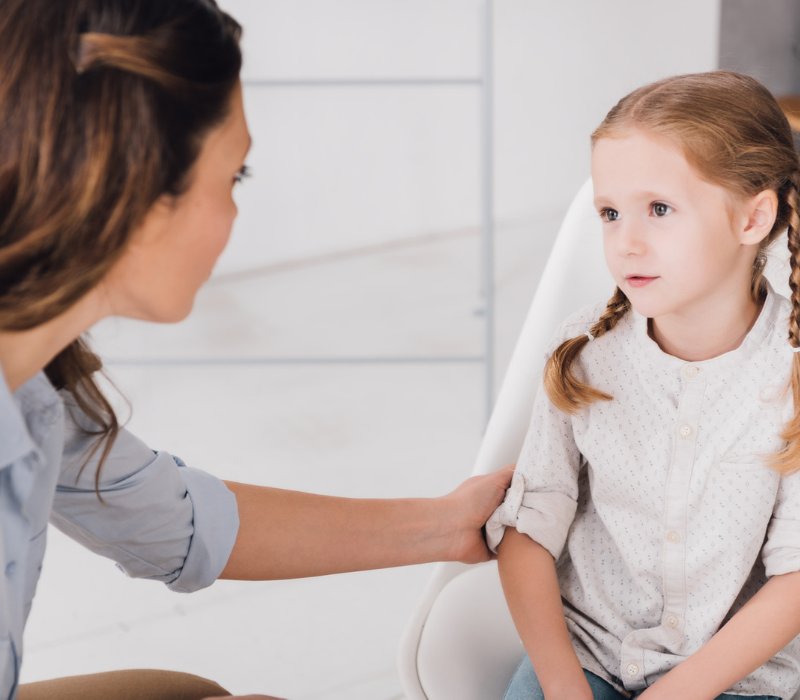 When my daughter spoke with Dr Torres for the first time, a few days later she picked up herself and started to go out and wanted to do things with me and by herself, she also wants to sign up for dance. I was completely amazed, everyone I spoke to was amazed. I’d also like to add that Dr. Torres is kind, patient, calm and very warm and friendly to me and my daughter. Every time I tell my daughter Dr. Torres is calling, a big smile comes on her face, it’s so wonderful to see that. I know will still have a long journey to go, and I cant wait to see what happens next, I am so glad I signed my daughter up for this. Please keep up the excellent work.”
When my daughter spoke with Dr Torres for the first time, a few days later she picked up herself and started to go out and wanted to do things with me and by herself, she also wants to sign up for dance. I was completely amazed, everyone I spoke to was amazed. I’d also like to add that Dr. Torres is kind, patient, calm and very warm and friendly to me and my daughter. Every time I tell my daughter Dr. Torres is calling, a big smile comes on her face, it’s so wonderful to see that. I know will still have a long journey to go, and I cant wait to see what happens next, I am so glad I signed my daughter up for this. Please keep up the excellent work.”
“I’ve been using BetterHelp for a while now and have really enjoyed working with Rachel. I’m a mom to a young child and having the ability to message her or schedule live sessions is a game changer. She is very kind and attentive to my feelings and concerns and gives me helpful insight. I have genuinely appreciated her support and benefited greatly from spending time working with her.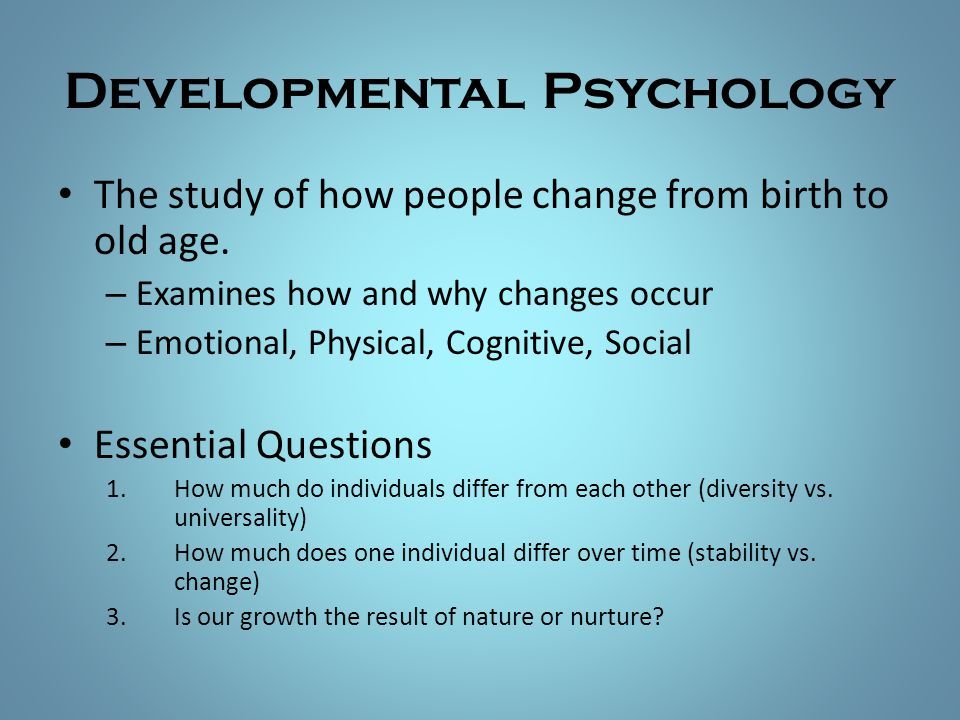 ”
”
If your child is experiencing anxiety, depression, or another mental disorder, seeking help with a child therapist is the best thing you can do. An experienced child psychologist can give you and your child the support both of you deserve. Take the first step by connecting with BetterHelp's mental health professionals today.
FAQs
When should children start seeing a therapist?
This will vary based on the child's individual thinking, speech, and other factors, but some therapists start seeing children by themselves around the ages of 7-9.
What do you call a child therapist?
Child therapists are sometimes referred to as a developmental psychologist. Many of these professionals focus on children and teenagers, though a therapist with any title can have therapy sessions or counseling sessions with children. This includes professionals with the titles of: Clinical Social Worker, Marriage & Family Therapist, Mental Health Counselor, Professional Counselor, and Psychologist.
Is it good for kids to go to therapy?
Child therapy can be beneficial, especially if for children who have challenges or problems that they cannot cope with alone. This could be as simple as talking about their feelings or learning new skills. Or it could help them find their strengths in life and feel more confident. Just because a child is attending therapy does not mean they have mental health issues.
When should I be concerned about my child's behavior?
Parents will likely be aware of their child's behavior, but it may become into concerning when a child exhibits lack of interest in activities, family, school, or friends. Or a parent may become concerned if their child displays feelings of distress or anguish. At that point, a counseling sessions might be beneficial for the child.
How do I get my child to speak in therapy?
While every child will respond to therapy a little bit differently, a parent may consider calling therapy is like a "feelings doctor.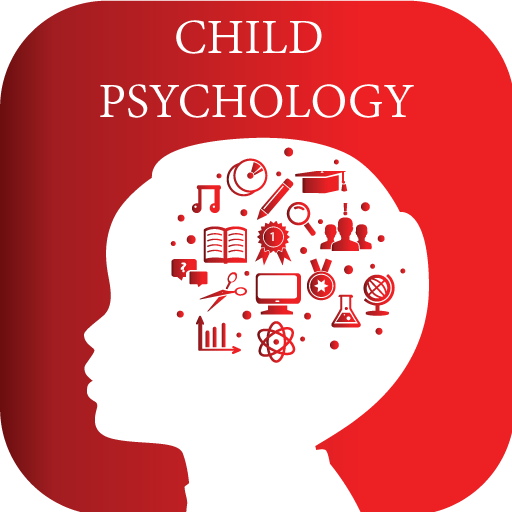 " You might also tell them that the therapist is there to help with feelings of sadness, madness, or happiness. Since they are already used to seeing the doctor when they have an ear infection or sore throat, this may be an easier comparison for them to understand, rather than explaining a therapist can help with mental health issues or provide them with coping skills for life's challenges.
" You might also tell them that the therapist is there to help with feelings of sadness, madness, or happiness. Since they are already used to seeing the doctor when they have an ear infection or sore throat, this may be an easier comparison for them to understand, rather than explaining a therapist can help with mental health issues or provide them with coping skills for life's challenges.
What is the difference between therapist and psychologist?
They are very similar roles. However, a psychologist can do research, contributing to academic and clinical advances in the field of mental health. A therapist refers to a broader group of professionals who undergo training and licensing to work with a variety of people in a clinical setting. Both can help you understand treatment options for a specific challenge you may be facing.
Why is my child so angry and defiant?
There is no one-size-fits-all answer to this question, but anger issues in kids can be the result of conditions like anxiety, ADHD, autism, or learning disorders.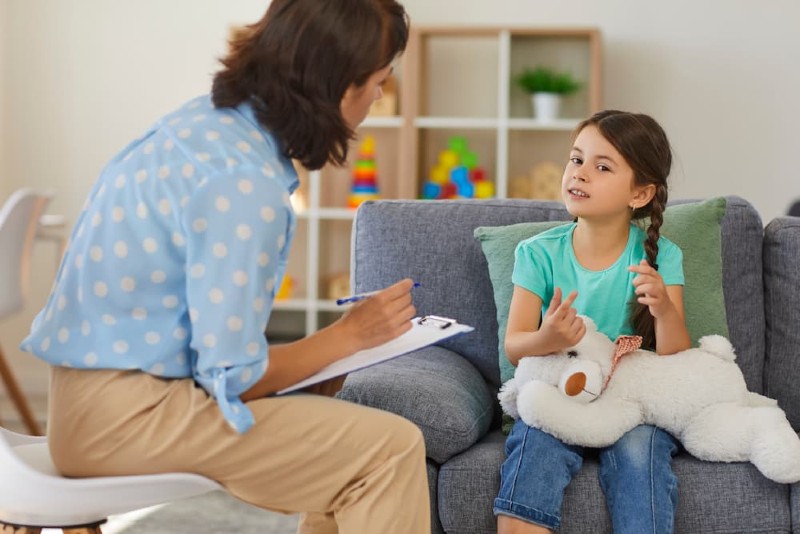 If you have concerns about your child's anger and defiance, it's best to consult a medical professional and get help do you don't have to navigate it alone. Your health insurance company can usually also point you in the direction of professionals who specialize in working with children.
If you have concerns about your child's anger and defiance, it's best to consult a medical professional and get help do you don't have to navigate it alone. Your health insurance company can usually also point you in the direction of professionals who specialize in working with children.
What causes a child to be disrespectful?
Again, this will vary greatly between children, but generally include poor problem-solving skills and not knowing how to show respect as they mature and take on their own identities.
Why is my child aggressive towards me?
While a child's actions might be perceived as aggressive, they're likely the result impulsive decision-making. In these situations, the child is likely not to consider the consequences of their actions, so their words and actions may come across in an aggressive way.
34 child psychologists in Nizhny Novgorod, 400 reviews
47 reviews
Kikhtenko Daria Petrovna
Child psychologist
Experience 15 years
Clinic "Neuro-psi" (formerly "Neurology")
Gorkovskaya (1.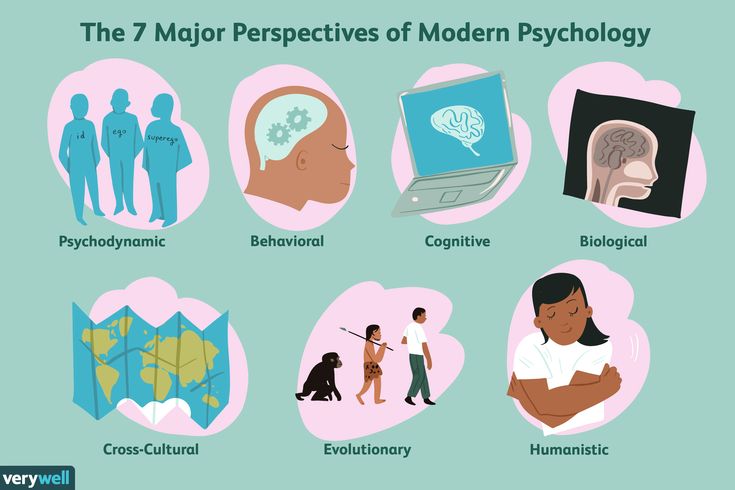 6 km)
6 km)
Moscow (4.4 km)
Strelka (4.5 km)
There are contraindications. Check with your doctor.
17 reviews
Gennady Mikhailovich Trubin
Child psychologist
Experience 1 year
Clinic "Neuro-psi" (formerly "Neurology")
Gorkovskaya (1.6 km)
Moscow (4.4 km)
Strelka (4.5 km)
There are contraindications. Check with your doctor.
7 reviews
Balakhonskaya Nadezhda Alexandrovna
Child psychologist
Experience 15 years
Clinic "Neuro-psi" (formerly "Neurology")
Gorkovskaya (1.6 km)
Moscow (4.4 km)
Strelka (4.5 km)
There are contraindications. Check with your doctor.
Check with your doctor.
51 reviews
Aleksey Sergeevich Gulyaev
Psychologist, child psychologist
Experience 10 years
Clinic "Neuro-psi" (formerly "Neurology")
Gorkovskaya (1.6 km)
Moscow (4.4 km)
Strelka (4.5 km)
107 reviews
Volgina Elena Nikolaevna
Psychologist, child psychologist
Experience 9 years
Clinic "Alexandria" on Gagarin Clinic "Alexandria" on Osharskaya
Gorkovskaya (2. 7 km)
7 km)
Leninskaya (2.9 km)
Zarechnaya (3.4 km)
Gorkovskaya (1.5 km)
Moscow (0.5 km3)
Chkalovskaya (4.9 km)
41 reviews
Guseva Anastasia Omarovna
Psychologist, child psychologist
Experience 7 years
Clinic "Neuro-psi" (formerly "Neurology")
Gorkovskaya (1.6 km)
Moscow (4.4 km)
Strelka (4.5 km)
17 reviews
Gennady Mikhailovich Trubin
Psychologist, child psychologist
Experience 1 year
Clinic "Neuro-psi" (formerly "Neurology")
Gorkovskaya (1. 6 km)
6 km)
Moscow (4.4 km)
Strelka (4.5 km)
5 reviews
Smirnova Anastasia Sergeevna
Psychologist, child psychologist
Experience 4 years
"Tonus Krokh" on Rodionova
2 reviews
Sharonova Daria Alekseevna
Psychologist, child psychologist
Experience 8 years
Clinic "Neuro-psi" (formerly "Neurology")
Gorkovskaya (1.6 km)
Moscow (4.4 km)
Strelka (4.5 km)
7 reviews
Balakhonskaya Nadezhda Alexandrovna
Child psychologist
Experience 15 years
Clinic "Neuro-psi" (formerly "Neurology")
Gorkovskaya (1. 6 km)
6 km)
Moskovskaya (4.4 km)
Strelka (4.5 km)
Mikhailova Ekaterina Yurievna
Child psychologist
Years of experience
"Zdorovenok" on Vorovskogo
Gorkovskaya (520 m)
Moscow (2.7 km)
Chkalovskaya (3.1 km)
47 reviews
Kikhtenko Daria Petrovna
Psychologist, child psychologist
Experience 15 years
Clinic "Neuro-psi" (formerly "Neurology")
Gorkovskaya (1.6 km)
Moscow (4.4 km)
Strelka (4.5 km)
28 reviews
Kadysheva Ekaterina Pavlovna
Psychologist, child psychologist, clinical psychologist
Experience 20 years
"Tonus Krokh" on Rodionova
4 reviews
Kurzykina Anna Alekseevna
Psychologist, child psychologist, clinical psychologist
Experience 13 years
"Tonus Krokh" on Rodionova
69 reviews
Rodionova Irina Vladimirovna
Child psychologist, psychologist, breastfeeding specialist
Experience 6 years
Children's clinic "Rusmedkids"
1 review
Lutskova Oksana Nikolaevna
Psychologist, child psychologist
Experience 27 years
"Tonus Krokh" on Vaneeva "Tonus Krokh" on Rodionova
Gorkovskaya (1.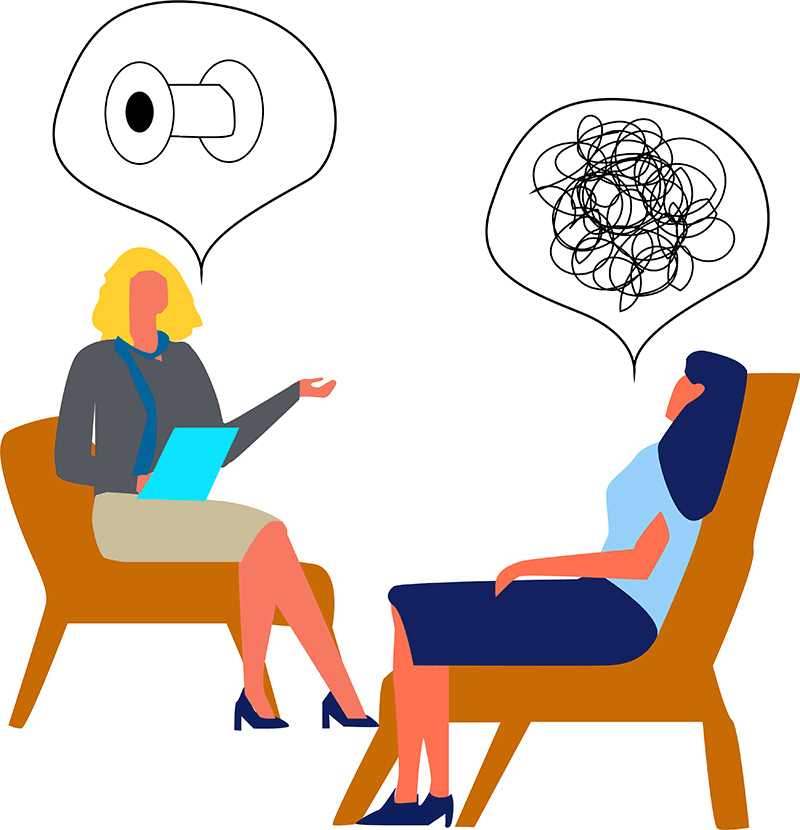 5 km)
5 km)
Moscow (4.5 km)
Strelka (4.9 km)
6 reviews
Lebedeva Svetlana Vitalievna
Psychologist, child psychologist
Experience 22 years
Clinic "Alexandria" on Gagarin
Gorkovskaya (2.7 km)
Leninskaya (2.9 km)
Zarechnaya (3.4 km)
1 review
Brsoyan Ani Norayri
Psychologist, child psychologist
Clinic "Family Practice"
Gorkovskaya (288 m)
Moscow (3. 3 km)
3 km)
Chkalovskaya (3.7 km)
2 reviews
Bushman Tatyana Anatolyevna
Psychologist, child psychologist
Experience 8 years
Clinic "Medland"
Komsomolskaya (1.6 km)
Avtozavodskaya (1.8 km)
Kirovskaya (1.8 km)
1 review
Sukhova Elena Anatolyevna
Psychologist, child psychologist
Experience 17 years
Clinic "Medland"
Komsomolskaya (1.6 km)
Avtozavodskaya (1.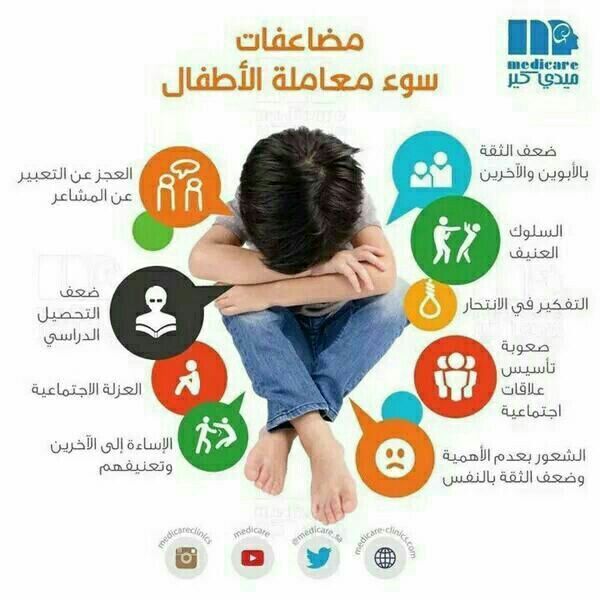 8 km)
8 km)
Kirovskaya (1.8 km)
4 reviews
Egorova Irina Venediktovna
Psychologist, child psychologist, neuropsychologist
Experience 15 years
Diagnostic center on Gagarin
Zarechnaya (3.5 km)
Leninskaya (3.6 km)
Revolution Engine (3.8 km)
5 reviews
Doronina Olga Yurievna
Psychologist, child psychologist, clinical psychologist
Experience 7 years
Clinic "Family Practice Plus"
1 review
Sysorova Oksana Yurievna
Psychologist, child psychologist
Medical and psychological center "Rostok"
Gorkovskaya (412 m)
Moskovskaya (3.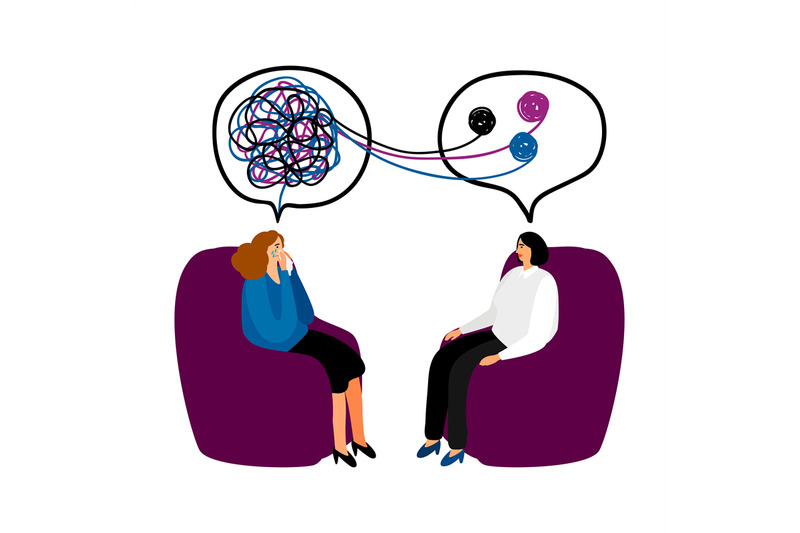 0 km)
0 km)
Chkalovskaya (3.4 km)
how to find a good family specialist
children's center and
youth
Development
Phones
+7(495)135-15-45+7(901)388-61-35
Author: Natalia Vizer
Contents:
- When you need a child psychologist
- What questions can be solved by a psychologist
- Myths about psychologists
- What to look for when choosing a specialist
- Psychological training or consultation - what to choose?
- Cases from life - when a child psychologist helped
- Child psychologist consultations at the K.O.T. format, prices, specialists
When you need a child psychologist
Raising a child is not an easy family task. Being a parent is not only a great joy, but also a lot of work. And sometimes it is absolutely not clear what is happening to the child, why the child's behavior has changed so much and what you should do in this situation. Yes, and their behavior in relation to children is not always happy. You love a child, but you yell at him, you want to agree “in a good way,” but you have to punish him. And what after? Feeling guilty, feeling like you're a bad parent...
Being a parent is not only a great joy, but also a lot of work. And sometimes it is absolutely not clear what is happening to the child, why the child's behavior has changed so much and what you should do in this situation. Yes, and their behavior in relation to children is not always happy. You love a child, but you yell at him, you want to agree “in a good way,” but you have to punish him. And what after? Feeling guilty, feeling like you're a bad parent...
The most correct solution to the problem of raising children is the advice of a competent specialist.
What questions can be solved by a psychologist
A child psychologist will help you understand the causes of problems with your child, understand how to change the situation and improve relationships in the family.
- You can get effective advice on raising children - how to instill responsibility, accuracy, teach him to communicate.
- You will learn about age characteristics, crises and how to overcome them harmoniously.
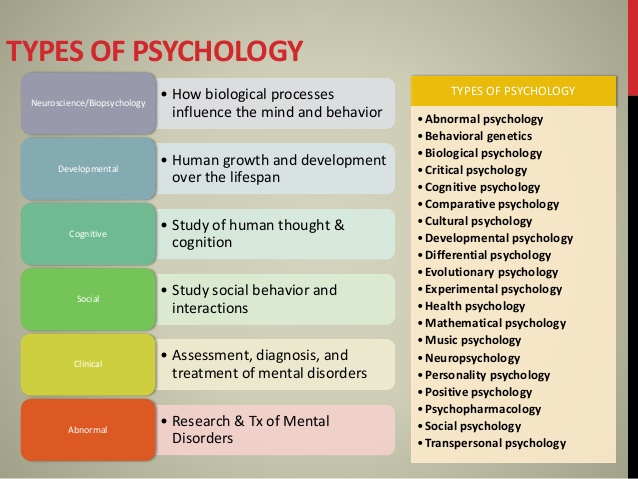
Meeting with a psychologist is useful at every stage of a child's development, because each age has its own characteristics. Knowing them, it is much easier to deal with your child and solve family problems.
But you should definitely contact a psychologist when:
- You notice a sharp change in the mood or behavior of the child
- Grades at school have deteriorated sharply, he refuses to go to circles or sections
- You have frequent family conflicts - with parents, brothers and sisters
- The child does not want to study
- It is difficult for him to build relationships with peers and adapt in a team
There are such peculiarities in the behavior of the child as:
- Childish shyness
- Increased aggressiveness
- Children's fears
Myths about psychologists
A child psychologist must have children
They may or may not be.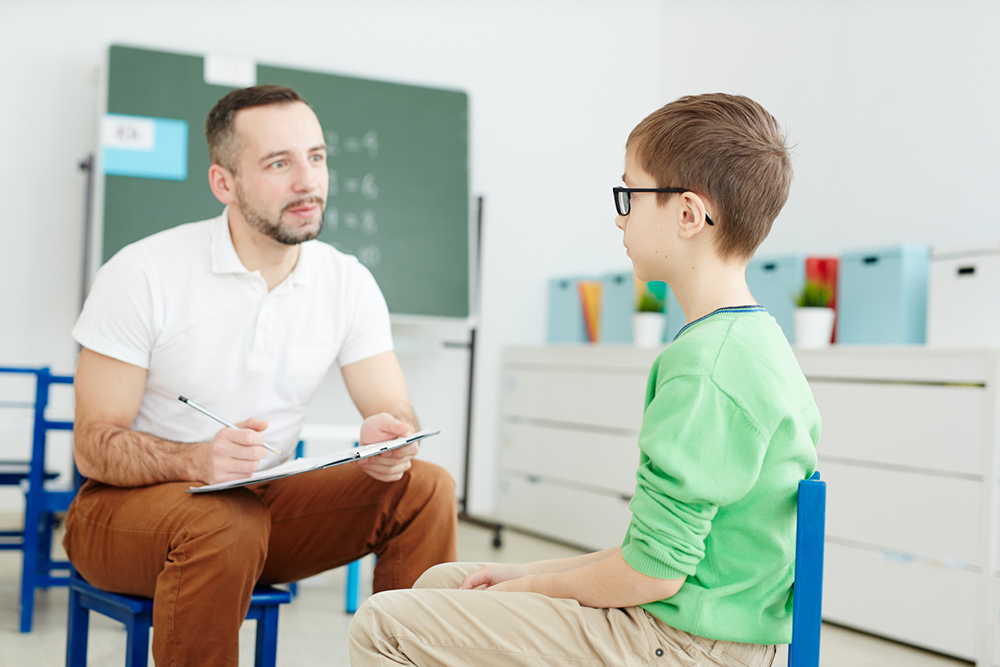 It doesn't matter. A good child specialist has knowledge and works with clients, and does not talk about his experience and does not give valuable advice, "like a girlfriend in the kitchen."
It doesn't matter. A good child specialist has knowledge and works with clients, and does not talk about his experience and does not give valuable advice, "like a girlfriend in the kitchen."
Psychologist “fills you with pills” or “registers”
This is not true at all, because he is not a doctor. Not a child psychiatrist and not a neurologist. It only deals with behavior, the family system, and the upbringing of the child. Of course, in special cases, he may recommend visiting a medical specialist. profile, but this is only a recommendation. How you do it is up to you.
The psychologist will look and see everything
It is still worth preparing for the visit. At the appointment, you will need to remember many moments of life, how your child develops at different ages, what problems were in the past, what kind of upbringing methods were used in the family.
A child psychologist only talks about the child.
This is not true. Say goodbye to this idea right away. You will talk about the entire family system as a whole, including grandparents. Each member of the family has an impact on the current situation more or less. Therefore, do not be surprised by such questions.
Say goodbye to this idea right away. You will talk about the entire family system as a whole, including grandparents. Each member of the family has an impact on the current situation more or less. Therefore, do not be surprised by such questions.
The child goes to a psychologist immediately everything will change
He will quickly become obedient and docile. This is not true. In order for the child to come to a harmonious state, the joint work of the whole family will be required. And change won't always be quick.
What to look for when choosing a specialist
First and foremost
profile education. Should have a degree in psychology. Courses in family therapy and childhood are good, but a degree is important.
Specialization
It is important that the specialist you choose is for children. Only such a person has enough knowledge about the development and behavioral characteristics of children of different ages.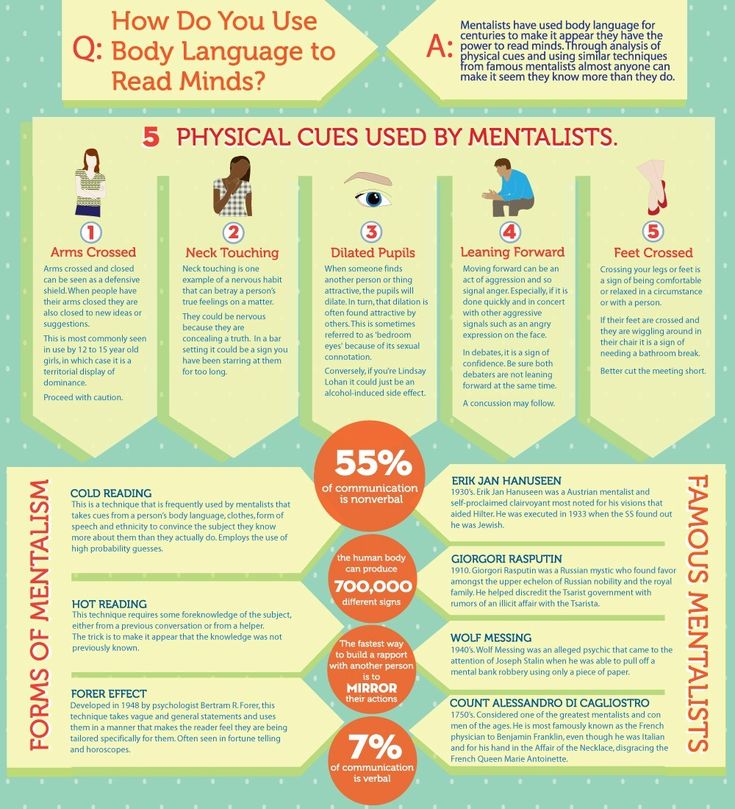
Experience
He must be. Moreover, young specialists are also effective, they know how to see the situation and build relationships with children. They work great in training for kids. But for individual consultations, it is still better to choose a person who has already helped many families.
Recommendations
They talk about good specialists, leave reviews. They can be found on the Internet, calculated in the social. networks. And if you attend trainings for children, you can always chat with other parents, get "live" feedback about the hosts and decide who you want to come to for an individual appointment.
However, there are no 100% good reviews. Each client has their own psychologist. You must match each other. But 90% of positive reviews should still be.
Advanced training
A good specialist is learning. You can't graduate from university and end your education there.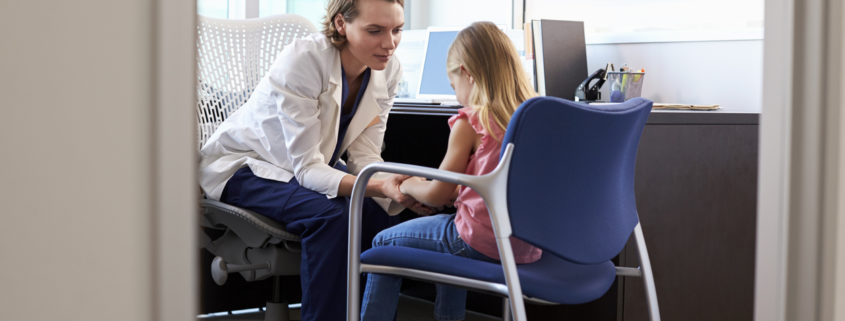 Science, including psychology, does not stand still. Time changes, children and their behavior, methods of working with them. To provide effective assistance, it is important to know about this and be able to use new knowledge in your work.
Science, including psychology, does not stand still. Time changes, children and their behavior, methods of working with them. To provide effective assistance, it is important to know about this and be able to use new knowledge in your work.
Where you can get a psychological consultation
Free centers. There are state organizations where there are specialists. If you have any questions, you can make an appointment.
Poles:
- Most often free of charge;
- There are good specialists in such centers.
Cons:
- There may be a long queue, but usually if there is a problem, you want to solve it now.
- You can get to a young specialist without work experience
- It is not always possible to choose who exactly you want to see
- Even good child psychologists in the centers are often "tired" - they have a very large number of appointments and little "planned" time for each client.

Online for free. This is help - on forms or through the “ask a psychologist a question” form
Pros:
- Free
Cons:
- One-sided answers, nothing can replace a conversation with a specialist
Paid online consultations. This is a modern, fast and high-quality help option.
Poles:
- You can choose the right specialist anywhere in the world
- You don't waste time moving
Cons:
- It is not always easy to build relationships without personal contact.
- The facilitator must be able to do this and have experience in such counseling.
Personal paid consultations. Efficient work option.
Pros:
- Choose the right specialist for all the above parameters
- Arrange for a convenient time for you
- There is a possibility of personal contact with the leader
Cons:
- Good specialists can also have a queue
- You need to choose the time for visiting a specialist.
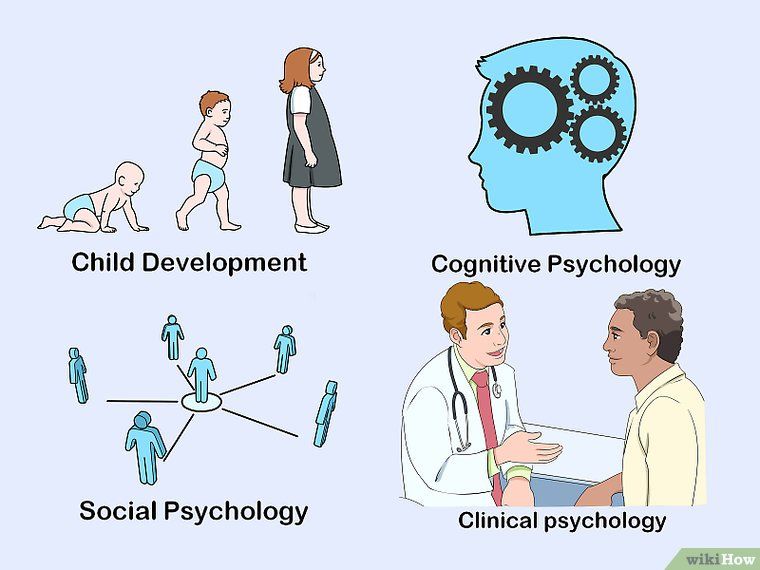
An additional plus is if a child psychologist, who had an individual appointment, also conducts psychological trainings for children. then he understands your child and the situation better, and help will be more comprehensive.
Psychological training or consultation - what to choose?
Problems have arisen - they need to be solved. This is clear to everyone. You decide to ask for help. But what to choose - training or an individual meeting?
Trainings or individual meetings - different forms of work. Children's training is suitable for developing a skill, and an individual reception is suitable for a deeper understanding of the problem. It is also better to choose an individual meeting if your issue cannot be resolved in a group.
The choice of children's training or consultation depends on the difficulties you are facing.
For example, a child has a problem that he cannot deal with. He communicates easily in principle, but in a particular team (school, section) there were difficulties.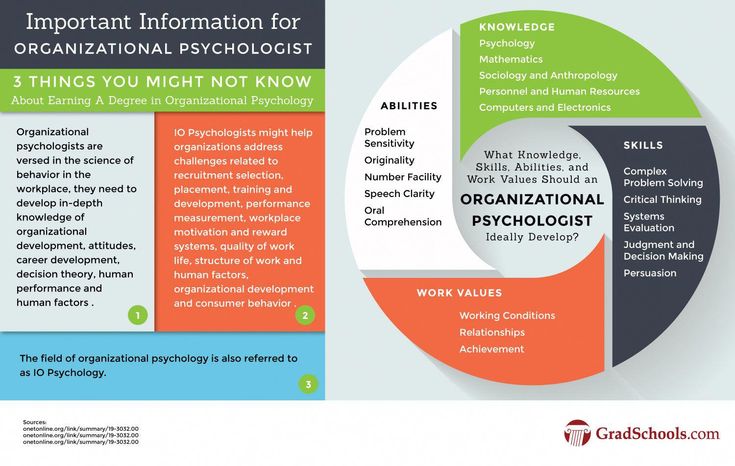 In this case, it is better to come to the reception to understand what the issue is and how to solve it. It may be that the question that has arisen is not related to communication in general.
In this case, it is better to come to the reception to understand what the issue is and how to solve it. It may be that the question that has arisen is not related to communication in general.
And if you notice that problems with communication, in principle, are everywhere and always, then it is better to go through a training program to develop this skill in a child.
It is also worth checking whether the child is ready to work in a children's group, or whether it is easier for him to communicate one on one with a specialist. You can ask your child about this.
Pay attention to whether the child is now ready to solve the problem. He is a person. You can't force yourself to go to a psychologist. If the child resists, then it is better to come to the reception yourself first. This will also be useful and effective.
A story about bad relationships with peers.
An 11-year-old boy did not develop relationships at all in the class, and in other children's groups.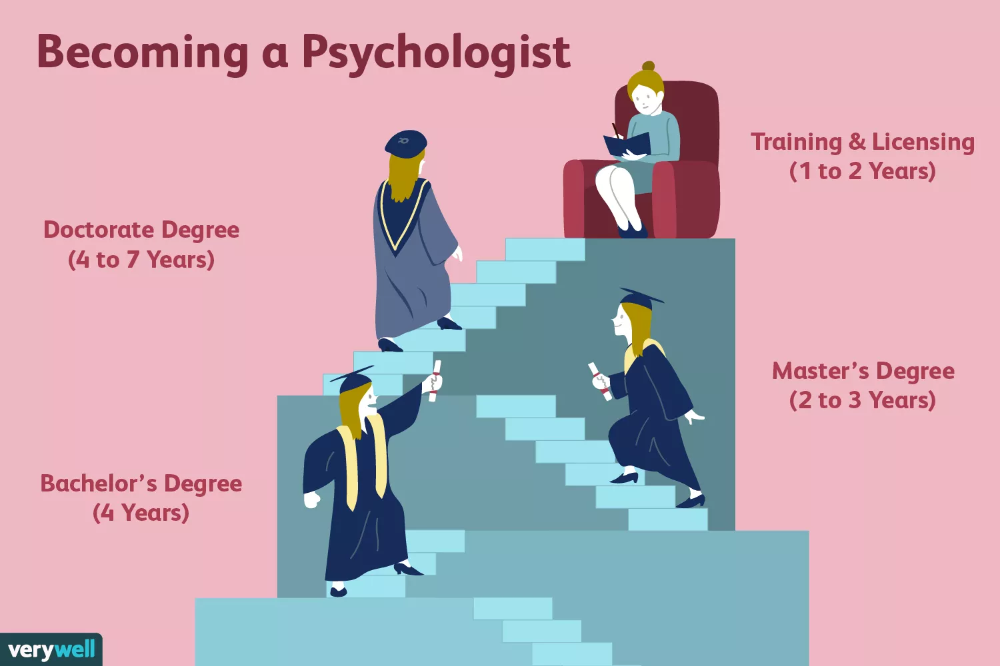 The child, who, according to the parents, is not at all aggressive, often fought, attacked other children. Naturally, he had very few friends, and the teachers did not treat him very well either. After a conversation with a child psychologist, we found out an important point - the child does not show emotions, do not talk about them. Let's give an example: a classmate touches his pencil case. He does not like. But the boy endures, says nothing. A classmate keeps touching his things. As a result, our client explodes, pushes, screams and beats a classmate.
The child, who, according to the parents, is not at all aggressive, often fought, attacked other children. Naturally, he had very few friends, and the teachers did not treat him very well either. After a conversation with a child psychologist, we found out an important point - the child does not show emotions, do not talk about them. Let's give an example: a classmate touches his pencil case. He does not like. But the boy endures, says nothing. A classmate keeps touching his things. As a result, our client explodes, pushes, screams and beats a classmate.
As a result, the child was offered to take the "Lord of Emotions" course in order to learn to understand his emotions, notice them and talk about what does not suit him.
The specialist explained to the parents that it is important to ask the child what he feels and why, to help him call feelings by their proper names.
Insecure girl.
Mom came up with the problem that her daughter was afraid to answer at the blackboard, she was constantly afraid that she would not succeed. As a result of the conversation, it turned out that in the family, parents pay attention to their daughter's mistakes, and her successes are taken for granted and are almost not noticed. But criticism is often emphasized. Parents, without noticing it themselves, constantly doubt the strength of the child and tell her about it. It was recommended that the girl attend several individual sessions with a psychologist in order to work with self-esteem and understand her strengths, or take the “I am sure” course. The girl chose individual lessons, they suited her better according to her current mood. The psychologist recommended that parents pay more attention to their daughter's successes, and speak softer about mistakes, while believing that she will do much better next time. Do not attach great importance to every childish mistake.
As a result of the conversation, it turned out that in the family, parents pay attention to their daughter's mistakes, and her successes are taken for granted and are almost not noticed. But criticism is often emphasized. Parents, without noticing it themselves, constantly doubt the strength of the child and tell her about it. It was recommended that the girl attend several individual sessions with a psychologist in order to work with self-esteem and understand her strengths, or take the “I am sure” course. The girl chose individual lessons, they suited her better according to her current mood. The psychologist recommended that parents pay more attention to their daughter's successes, and speak softer about mistakes, while believing that she will do much better next time. Do not attach great importance to every childish mistake.
Child psychologist consultations at the K.O.T. format, prices, specialists
Center K.O.T. specializes in working with children and their parents, our psychologists are constantly trained and improve their professional level.



